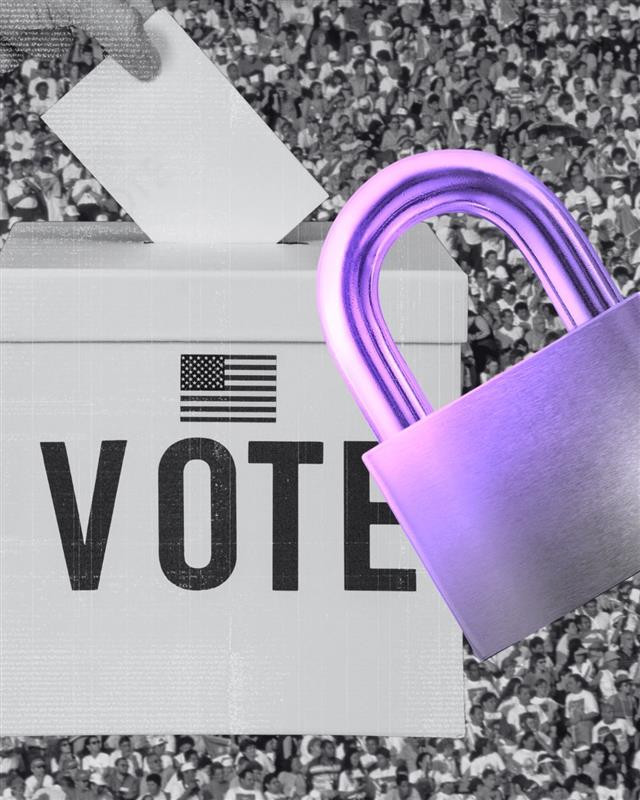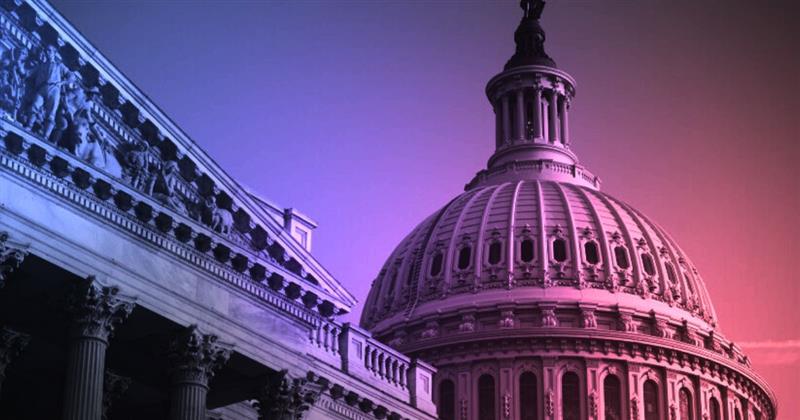These parties are worse than obsolete, I concluded. They're failing on every dimension that matters. The only question is what we should do about it.
The Big Picture
At a recent Braver Angels conversation circle, we tackled a big, messy, emotionally loaded question: What should we do about the political parties?
Should we scrap them? Reform them? Strengthen them? What role do they play in a democracy that so many people feel shut out of? These questions aren’t just theoretical. For tens of millions ofAmericans—especially the growing number of independent voters—they feel urgent and personal.
Braver Angels' goal is to bring Americans together by having difficult conversations in a respectful way. And that's exactly what we did during this conversation circle. The event was sponsored by the Prohuman Foundation, which celebrates people's individuality and shared humanity.
This conversation circle included partisans, independents, reformers, and skeptics. And even though there was plenty of criticism of both parties, and plenty of disagreement about how to move forward, the striking thing was how respectful and constructive the conversation was.
Zooming In
We started with a proposition: “Resolved, our political parties are obsolete institutions.”
I opened with an affirmative case, making an argument against the parties as we know them. They’ve failed their core institutional responsibilities—to engage voters, develop sound policy, and elevate capable candidates. Instead, they’ve consolidated power, fueled polarization, and left a growing share of the country feeling unheard and politically homeless.
I shared data that 34% of voters now identify as independents—compared to 35% Republicans and 31% Democrats—and that 80% of Americans believe elected officials don’t care what they think. At the Independent Center, we hear this disillusionment every day.
As one of our community members put it, “They’re not actually listening to the people and what we want to happen.”
These parties are worse than obsolete, I concluded. They're failing on every dimension that matters. The only question is what we should do about it.
I was joined by William Deresiewicz, author, essayist, and former Yale University English professor. (Side note, if your first-ever debate pits you against a man of letters, at least make sure it’s also his first debate.)
Bill took the negative side of the proposition that our parties are obsolete institutions. He made the case that parties—flawed though they may be—are still essential. Our two-party system is deeply embedded in our electoral structure, and no third party is likely to gain traction fast enough to meaningfully disrupt it. Rather than discard the parties, Bill argued we should focus on reforming them. After all, the parties are coalitions—and history shows that insurgent movements can take over a party and drive real change. Think FDR, Reagan, Clinton, even Trump.
He also reminded us that alternative systems, like Israel’s multi-party parliamentary model, come with chaos of their own—frequent elections, fragmented legislatures, and unstable coalitions.
Consensus Amid Disagreement
Many people in the circle shared deep frustration with the parties—but very few wanted to get rid of them altogether. Instead, they wanted ways to make the parties more responsive to voters, less beholden to insiders, and more open to competition. Ideas floated included open primaries, ranked choice voting, campaign finance reform, and lowering barriers to entry for nonpartisan candidates.
In other words: people wanted accountability, not annihilation, when it comes to U.S. political parties.
Even with our opposing opening statements, something surprising happened: We didn’t spiral into defensiveness.We listened. We took turns speaking. We followed the Braver Angels’ rules for respectful debate. And we were able to hear one another, learn from each other, and find points of agreement.
Independent Lens
As someone who speaks often with independent and nonaligned voters, I wasn’t surprised by this nuance. Independents aren’t anti-party. They are pro-democracy, pro-accountability, and pro-decency. They are also deeply tired of being ignored.
They want a system that treats them like full participants—not as afterthoughts or spoilers. They want leaders who represent all their constituents, not just their partisan base. And they want politics to value integrity and sound policy over tribal loyalty.
This conversation reinforced something I’ve believed for a long time: We don’t need to stop talking, and even disagreeing, about politics. We need better ways to hear each other.
Where We Go from Here
If you’re frustrated with the state of American politics, you’re not alone. But you’re also not powerless. Conversations like the one we had through Braver Angels remind me that meaningful political dialogue is still possible—and that reform doesn’t require unity on every solution. It requires curiosity, respect, and the willingness to stay at the table.
So, what should we do about the parties? Start by talking about them. Challenge them. Push them to be better. And most of all, refuse to accept that outrage is the only way to be heard.
And if you want to participate in or even help facilitate more bipartisan conversations like this one, the Braver Angels website offers a wealth of resources, including listings of local Braver Angels chapters, training in leading conversation circles, and information about how to have better conversations across difference.
With deep appreciation for all of the Conversation Circle participants at the 2025 FreedomFest as well as the Prohuman Foundation for the opportunity to join this debate, and Braver Angels for all the work they do promoting bipartisan political engagement. Finally, thanks to Bill Deresiewicz for being a gracious debate opponent.


.jpeg)


.jpg)